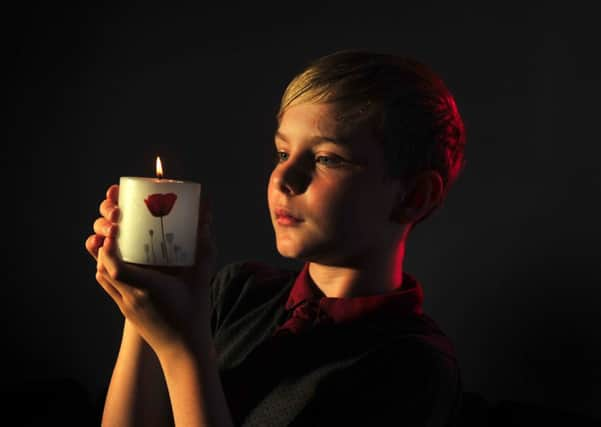Comment: Vigil will remember the ‘murderous folly’ of war


This evening’s symbolic tribute, when the country is urged to light a candle and reflect on the sacrifices made by forebears in the name of freedom and liberty, will last an hour.
Every second of every minute will be rich with poignancy and it should be the “solemn duty” – the eloquent words of the Archbishop of York – of all to observe this nationwide act of remembrance.
Advertisement
Hide AdAdvertisement
Hide AdYet, as families embrace the Lights Out initiative, it should be seen in the context of the events of 100 years ago when Britain declared war on Germany.
“The lamps are going out all over Europe, we shall not see them lit again in our lifetime,” said Sir Edward Grey, the then Foreign Secretary, with a sense of foreboding.
His pessimism was not misplaced – tens of millions would pay the ultimate price on the battlefields of Europe, and beyond, over the next four years. And what did they achieve? A fragile peace which lasted just under 21 years before the rise of Nazi tyranny led to another global conflict.
This was not the war to end all wars, as the author H.G. Wells suggested – and hoped – in 1914. In the brutally blunt words of Harry Patch, the last survivor of the Great War: “It was not worth even one life.” This regret haunted him until he passed away in 2009 at the venerable age of 111. The writer J.B. Priestley, who joined the Duke of Wellington’s West Riding Regiment, spoke of his generation being slaughtered “by huge murderous folly”.
Advertisement
Hide AdAdvertisement
Hide AdYet the lasting ramifications of these momentous events were masked by the blind optimism and unity of purpose fuelled by Lord Kitchener’s call to arms through posters depicting King George V and the slogan ‘Your country needs you’. How could young men ignore their War Secretary when the palpable sense of national unity was in blissful ignorance of the looming stalemate that continues to be epitomised by the bloody killing fields of the Somme?
Yet it is the modesty of these Tommies, and those working in grim conditions in the munitions factories on the Home Front, that remains so striking. Unlike so many of today’s so-called celebrities who believe their own publicity and immortality, those fortunate enough to survive this trench warfare did not regard themselves as heroes. They were just doing their duty, hence the reluctance on the part of many to talk about the experiences which left them mentally scarred for life.
How ironic, therefore, that public awareness about the First World War only began to resonate as the last survivors passed away – and families became to appreciate the significance of each and every name inscribed on war memorials across Britain, or the poignancy of the rows of unmarked graves disappearing over the horizon at so many war cemeteries across Europe.
Though raw statistics help to illustrate the loss of life, and also the futility of war, it is the stories behind each name which are so inspirational and which must stiffen the resolve of all those striving against seemingly insurmountable odds to achieve a peaceful outcome to current conflicts. For, in every respect, this is the lucky generation with today’s trials and tribulations, frankly, trivial in comparison to the dark days of 100 years ago when so many fine young men – individuals with their lives ahead of them – paid the ultimate sacrifice.